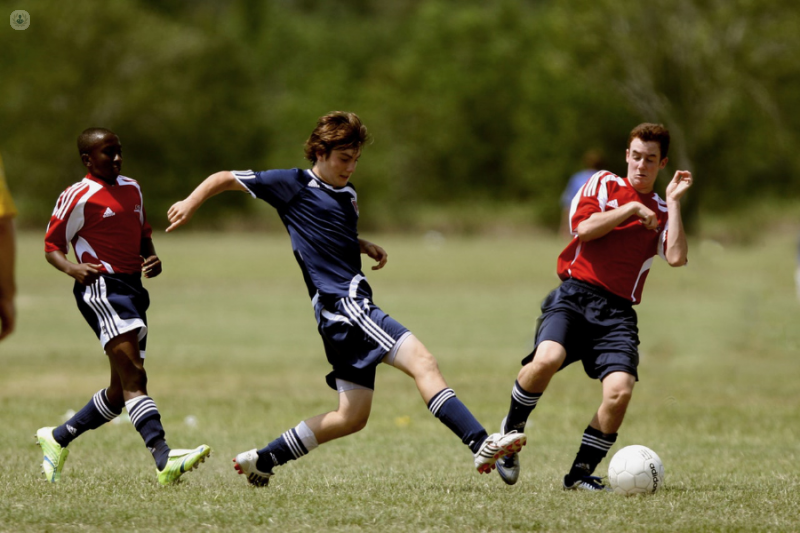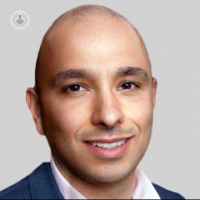Tendon injuries and how to treat them
Written by:What happens if you injure your tendon? What’s the outlook for tendinopathy compared with a tendon rupture? How do you prevent further tendon injuries? We asked founder of UK Sports Medicine and expert orthopaedic surgeon, Mr Neil Jain.

What are tendon injuries?
Tendon injuries are an injury to the tendon, the piece of connective tissue that connects muscle to bone. These can vary from tendinopathy (formerly thought of as tendonitis) to a complete rupture or full thickness tear of the tendon.
Tendon injuries can occur following repeated movement, often due to work, or because of a sporting injury. Tendons also undergo a degenerative process through ageing, thereby making tendons more susceptible to injury later in life.
What are the most common tendon injuries?
Injury may occur to any tendon in the body. However, the most common tendon injuries for tendinopathy involve:
- the rotator cuff in the shoulder
- so called 'tennis elbow' at the lateral epicondyle
- patella tendinopathy in the knee
- the achilles tendon in the ankle.
The most common sites for tendon rupture or tear are:
- the rotator cuff
- the biceps tendon
- the quadriceps tendon
- the patella tendon
- the achilles tendon.
Such injuries often occur in people who play sports..
What are the symptoms?
Tendinopathy presents with pain, often following activity.
A tendon tear or rupture is associated with an injury and often the patient can feel a tear or snapping sensation at the time of injury.
If the tear is in the upper limb there may be clinical deformity, i.e. the biceps muscle appears distorted when it is torn, as does the pectoralis major. However, the supraspinatus tendon of the rotator cuff will not show any early deformity. It would present with pain and difficulty lifting up ones arm.
In the lower limb, tendon ruptures are often easier to diagnose, as they not only show clinical deformity but functional problems. It is often impossible to do any weight bearing with a quadriceps, patella or achilles tendon tear.
What’s the prognosis?
Prognosis is generally good and is based on the treatment.
Most tendinopathy cases are best treated by physiotherapy with a focus on eccentric contraction exercises. In addition, a period of offloading or controlled loading can aid recovery from tendinopathy. Recently we have also seen promising results with biologic injections, such as various types of platelet-rich plasma (PRP).
Tears of tendons and ruptures are best treated surgically. The prognosis from surgery is associated with timing of the surgery, with the best outcomes seen with early surgical intervention. Therefore a prompt diagnosis is essential. Seeing a specialist early is highly recommended, as we now have a large number of orthopaedic surgeons in the UK that specialise in soft tissue orthopaedics, and treatment is much better than in the past.
What are your top tips for preventing tendon injuries?
It is not possible to fully prevent such injuries if you take part in sports, but it is possible to reduce the risk of such an injury.
Here are some tips to follow:
- Appropriate warm up is essential . Programmes such as the FIFA 11+ have been demonstrated to decrease the rate of injuries when it is carried out.
- Good form and technique are also important. Optimising the kinetic chain will help to control the forces to which an individual tendon is exposed.
- Keeping a good level of core strength is advised and pilates may have some benefit
In addition, those individuals that have suffered tendinopathy in the past can decrease the risk of recurrence if they maintain their physiotherapy techniques.
If you have a tendon injury that you would like investigated, click here to book a consultation with Mr Jain via his Top Doctors profile.


